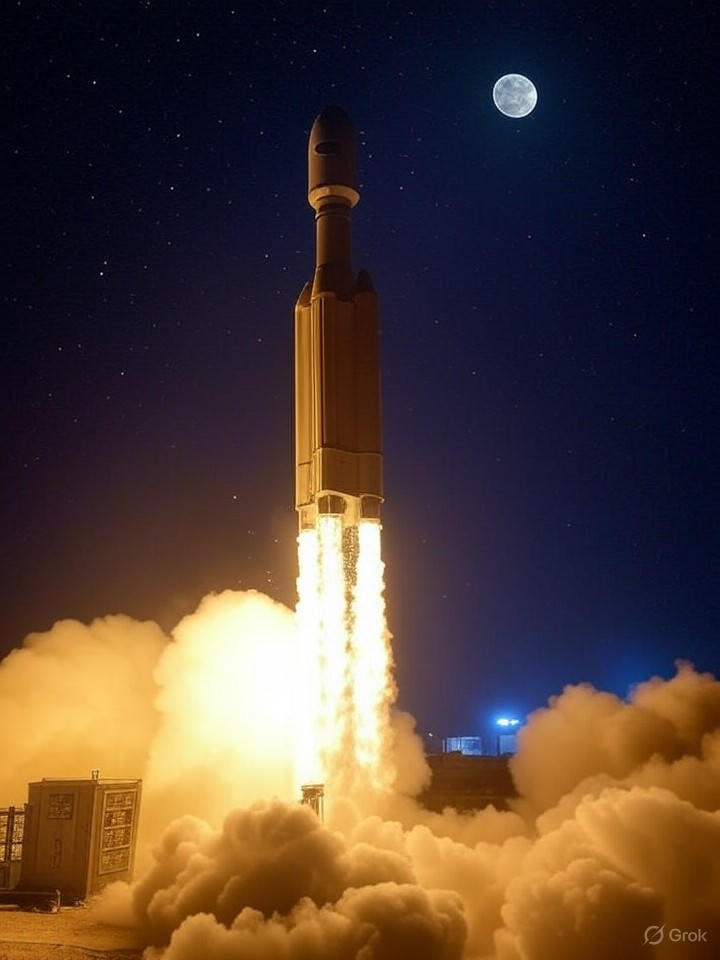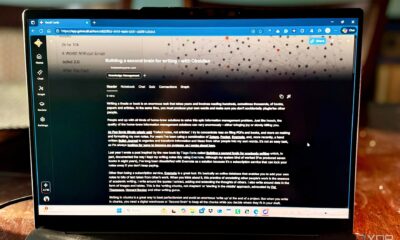Science
AI Transforms Space Exploration: Innovations and Challenges Ahead

In a significant development for the space industry, artificial intelligence (AI) is redefining how missions are planned and executed. During a recent summit in Seattle, industry leaders, including executives from Blue Origin and SpaceX, discussed how AI technologies are enhancing operations across various aspects of space exploration, from satellite management to interplanetary missions. These advancements are not just improving efficiency; they are also fundamentally altering the way space activities are conducted.
AI’s Impact on Mission Efficiency
The integration of machine learning algorithms is allowing companies to optimize rocket trajectories in real time, resulting in fuel savings of up to 15%. This transformation reduces the risk associated with missions and enhances overall success rates. For example, AI-driven predictive analytics are now employed to foresee potential satellite failures by analyzing extensive data from orbital sensors. Insights shared at the summit suggest that these technologies could extend the operational lifespan of satellite constellations like Starlink by several years, potentially saving billions of dollars in replacement costs.
As space missions advance further from Earth, the demand for autonomous spacecraft is increasing. AI is enabling these vehicles to make complex decisions without constant human input. NASA is at the forefront of this innovation, utilizing neural networks to analyze terabytes of cosmic data. This capability is crucial for missions such as the James Webb Space Telescope, where AI algorithms improve image clarity and enhance the detection of exoplanets.
Emerging Challenges and Future Prospects
Despite the promise of AI in space exploration, its adoption raises concerns about data security and algorithmic bias. Industry experts are calling for the establishment of regulatory frameworks to ensure that these technologies are deployed safely. Looking to the future, the convergence of AI with quantum computing is expected to unveil new possibilities. A recent report from McKinsey forecasts that hybrid AI-quantum systems could accurately simulate asteroid mining scenarios, providing companies with insights for resource extraction from celestial bodies. This innovation could disrupt traditional mining industries on Earth, offering sustainable alternatives.
Startups are also making strides by combining AI with robotics. The StartUs Insights guide highlights ventures focused on developing AI-powered drones for orbital debris removal. This initiative addresses the increasing issue of space debris that poses threats to active satellites.
Investment in AI-driven space ventures is surging, leading analysts to predict substantial growth in the sector. Strategic partnerships will be essential for navigating geopolitical tensions and supply chain challenges. The European Space Agency is prioritizing AI, promoting global collaboration and efforts to standardize AI protocols for international missions. In the United States, discussions regarding AI’s implications for national security are intensifying, particularly concerning countermeasures against adversarial satellite interference.
As 2025 approaches, the space industry’s commitment to integrating AI signals a pivotal shift towards intelligent and adaptive systems. The Seattle summit underscored that while the potential for innovation is vast, success will depend on balancing progress with oversight. This fusion of technology and exploration could redefine humanity’s capabilities in the cosmos, paving the way for both economic growth and scientific breakthroughs.
-

 Technology5 months ago
Technology5 months agoDiscover the Top 10 Calorie Counting Apps of 2025
-

 Health3 months ago
Health3 months agoBella Hadid Shares Health Update After Treatment for Lyme Disease
-

 Health3 months ago
Health3 months agoErin Bates Shares Recovery Update Following Sepsis Complications
-

 Technology4 months ago
Technology4 months agoDiscover How to Reverse Image Search Using ChatGPT Effortlessly
-

 Technology1 month ago
Technology1 month agoDiscover 2025’s Top GPUs for Exceptional 4K Gaming Performance
-

 Technology3 months ago
Technology3 months agoElectric Moto Influencer Surronster Arrested in Tijuana
-

 Technology5 months ago
Technology5 months agoMeta Initiates $60B AI Data Center Expansion, Starting in Ohio
-

 Technology5 months ago
Technology5 months agoRecovering a Suspended TikTok Account: A Step-by-Step Guide
-

 Health4 months ago
Health4 months agoTested: Rab Firewall Mountain Jacket Survives Harsh Conditions
-

 Lifestyle5 months ago
Lifestyle5 months agoBelton Family Reunites After Daughter Survives Hill Country Floods
-

 Health3 months ago
Health3 months agoAnalysts Project Stronger Growth for Apple’s iPhone 17 Lineup
-

 Technology4 months ago
Technology4 months agoHarmonic Launches AI Chatbot App to Transform Mathematical Reasoning





















